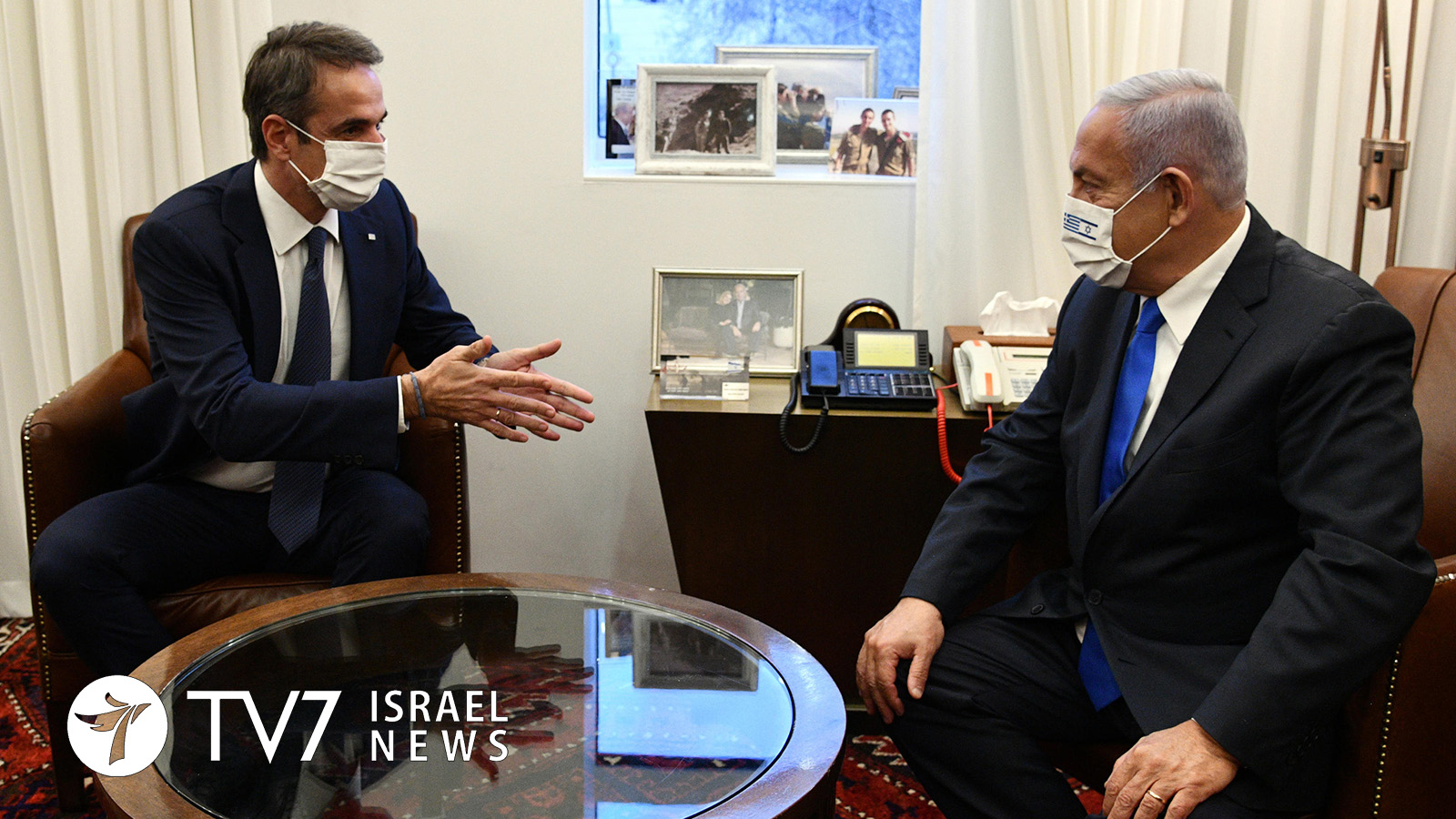Israel and Greece are hoping to spearhead a “green passport” program to enable the resumption of international travel for people who have been vaccinated against the coronavirus.
Israeli Prime Minister Benjamin Netanyahu greeted his Greek counterpart Kyriakos Mitsotakis in Jerusalem yesterday, where the two leaders signed an accord to allow Israelis with proof of COVID-19 vaccinations to visit the island nation.
Greece is hoping that standardized certificates showing visitors have been inoculated will help revive tourism, which accounts for about a fifth of the Greek economy and employs one in five workers. The sector collapsed last year as the pandemic eviscerated revenue to €4 billion euros ($4.81 billion) from 18 billion in 2019.
“We’ve just discussed a green passport arrangement where Israelis, when we lift the restraints on flights, would be able to go to Greece without any limitations. No self-isolation. Nothing. And I think this is good news for all of us. Our cooperation is good for our countries. It’s good for the entire region,” said Prime Minister Netanyahu at at a live-streamed joint news conference with Mitsotakis.
The Greek leader remarked, “We need to facilitate travelers once they provide easy proof of vaccination and this is what we intend to do with Israel.”
Israel has been a world leader in vaccinations – with more than a third of its population receiving the Pfizer Inc-BioNTech shot. Mitsotakis said Israel’s rapid vaccine campaign meant Monday’s agreement could point the way for similar accords with other countries later, allowing tourists to visit without additional restrictions.
“I expect what we will be doing with Israel to be a trial run for what we can do with other countries,” he said, adding that he expected a gradual decline of the disease in the coming months ahead of the vital summer season.
Greece has long been a popular destination for neighboring Israelis, whose suppressed yearning for travel is considerable.
The 27-nation European Union is lagging behind the Israeli-Greek initiative, amid ongoing debate over a requirement for vaccination certificates for cross-border travel. Opponents have argued that such documentation could be ‘discriminatory,’ while medical authorities are cautious over the efficacy inoculations will have on the transmission of COVID-19.
Meanwhile, Israeli Prime Minister Netanyahu used his meeting with his “good friend Kyriakos” to praise increasing bilateral relations in trade, security and technological cooperation.
“We have a common past. We are very proud of our past and eager to seize the future together. We’re two democracies at the edge of the Mediterranean. We have Athens and Jerusalem, as I never tire of saying, are the ones who laid the foundations for our modern Western civilization and we share common aspirations for stability, prosperity and security,” he said.
Netanyahu went on to praise the “tremendous trilateral partnership” between Israel, Greece and Cyprus. “Our cooperation allows us to seize opportunities on energy. We discussed the EastMed pipelines with some innovative ideas that Prime Minister Mitsotakis brought,” he revealed.
The two leaders also discussed Israel’s trial study of what is being hailed as a new “miracle drug” capable of curing the coronavirus. The medication “has been tested on 30 people and found effective if you’re infected by corona and you’re seriously ill. You inhale this with a saline solution and you come out feeling good. We don’t know yet where this will develop. It’s going into trials,” Netanyahu said, adding that the development is of key interest to Prime Minister Mitsotakis.
The Greek leader eagerly volunteered participation of his nation’s leading hospital in Israel’s clinical trials, which Netanyahu said was likely to be approved in “an example of our cooperation in forging ahead to new areas.”
